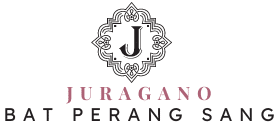How to Create a Seamless Smart Home Experience for Residential Tenants?

In an era defined by digital innovation, the real estate sector is not exempt from the transformative power of technology. As property managers, your duty extends beyond providing just four walls and a roof. Modern renters expect a lifestyle, a living experience that incorporates convenience, security, and energy efficiency. This article explores how you can leverage smart home technology to create a seamless living experience for your tenants.
Understanding The Importance of Smart Home Technology in Rental Properties
Before delving into the specifics, it’s crucial to understand why smart home technology is becoming more prevalent in rental properties.
Also read : What Are the Environmental Implications of High-Rise Versus Low-Rise Building Development?
Smart devices and systems are no longer a novelty but a necessity for many renters. They offer control, convenience, and a level of personalization that was previously unimaginable. Whether it’s remote access to security systems or intelligent energy management devices, smart technology is redefining the rental experience.
More than half of renters are willing to pay more for a rental property with smart home technology. This makes it an excellent investment for property managers who want to attract more tenants and increase their rental return.
In parallel : How to Prepare a Real Estate Investment Portfolio for Demographic Shifts?
Incorporating smart home features can also help with property management. For instance, smart locks and access control systems can streamline the check-in process for new tenants and make managing multiple properties easier.
Selecting the Right Smart Devices for Your Rental Property
Not all smart devices are created equal, and as property managers, you must be strategic in your choice of smart home technology.
Safety and security devices, such as smart locks and security systems, should be your top priority. These devices not only provide peace of mind to your tenants but also help protect your property from potential damage or theft.
Smart thermostats and energy management devices should also be on your list. These devices allow tenants to control their living environment while helping them save on energy costs. Moreover, they also contribute to sustainability goals, making your property more appealing to eco-conscious renters.
Lastly, consider investing in smart appliances, especially for furnished properties. They add a level of convenience and luxury that could set your property apart from the competition.
Installation and Maintenance of Smart Home Devices
After selecting the right smart devices for your rental property, the next step is installation and maintenance.
Proper installation is key to ensuring that the devices function as intended and provide the promised benefits. It is advisable to hire professionals for the installation to avoid any technical glitches.
Maintenance is equally important. Regular checks and updates can help keep the devices running smoothly and prevent any potential issues. As property managers, you should provide clear instructions to your tenants on how to use the devices and whom to contact in case of any problems.
It’s worth noting that while some tenants might be tech-savvy, others might struggle with understanding how to use these devices. Therefore, it’s crucial to provide adequate training and support to ensure all tenants can enjoy the benefits of smart home technology.
Leveraging Smart Home Technology for Efficient Property Management
Smart home technology doesn’t only benefit the tenants; it can also revolutionize your property management processes.
With smart access control systems, you can manage who has access to your properties remotely. This can be particularly useful for short-term rentals, where tenants frequently change.
Smart energy devices can provide real-time data on energy usage, helping you identify any potential issues and make necessary adjustments.
In addition, integrating these smart devices with property management software can further streamline your operations. You can monitor and control all smart devices from one central platform, saving time and reducing complexity.
Enhancing the Tenant’s Living Experience with Smart Home Technology
The ultimate goal of incorporating smart home technology in your rental properties is to enhance the tenant’s living experience.
With smart devices, tenants have greater control over their living environment. They can adjust the temperature to their liking, monitor their energy usage, and ensure their home is secure, all from the convenience of their smartphones.
This heightened level of control and convenience can significantly improve their living experience, making them more likely to renew their leases. Moreover, offering a seamless smart home experience can also attract more potential tenants, helping you maintain a high occupancy rate.
Remember, creating a seamless smart home experience for your tenants goes beyond just installing smart devices. It involves understanding their needs and preferences, providing adequate training and support, and continually improving and updating your smart home offerings based on their feedback.
With the right approach and strategy, smart home technology can be a game-changer for your rental properties, benefiting both you and your tenants.
Incorporating Home Automation for a Seamless Living Experience
Home automation, a key component of smart home technology, creates a seamless and integrated experience for tenants, enhancing their overall living experience.
Home automation includes a wide range of devices and systems that can be operated remotely or programmatically. These vary from simple appliances such as Google Home or Alexa, to more complex smart home systems like smart lighting, heating, and cooling systems, automated blinds, and even smart refrigerators or washing machines.
Smart lighting is one popular and relatively affordable aspect of home automation. It provides tenants with the ability to control light intensity, color, and scheduling, all from their smartphones. This can enhance the aesthetic appeal of the living spaces, while also enhancing energy efficiency.
Smart thermostats, another cornerstone of home automation, allow tenants to adjust the temperature from their smartphones, creating a comfortable living environment while saving on energy costs.
Moreover, home automation can also include entertainment systems. For instances, smart TVs or speakers that can be remotely controlled from a smartphone or tablet can significantly enhance the tenant’s living experience.
Remember, the main goal of home automation is to create an experience that is not only comfortable and convenient but also intuitive. As property managers, you need to ensure that the home automation systems you choose are user-friendly and easy to navigate, even for tenants who are not technically inclined.
Conclusion: The Future of Real Estate is Smart
In conclusion, the digital revolution is transforming the real estate industry, with smart home technology playing a pivotal role in this transformation.
As property managers, embracing smart home technology is not just about keeping up with trends. It’s about enhancing the value of your rental properties, improving the living experience for your tenants, and streamlining your property management processes.
From smart locks and thermostats to fully automated living spaces, smart technology is redefining what it means to provide a rental property. A smart home offers control, convenience, security, and energy efficiency, all of which are high on the list of tenants’ expectations today.
However, successfully incorporating smart homes in your rental properties requires careful planning and selection of smart devices, proper installation and maintenance, and continuous improvement based on tenant feedback. It’s also crucial to provide adequate training and support to ensure all tenants can fully enjoy the benefits of smart home automation.
In a world where digital innovation continues to shape our lives, the future of real estate is smart. As property managers, it’s your duty to lead the way, embracing smart home technology to create a seamless and superior living experience for your tenants.
